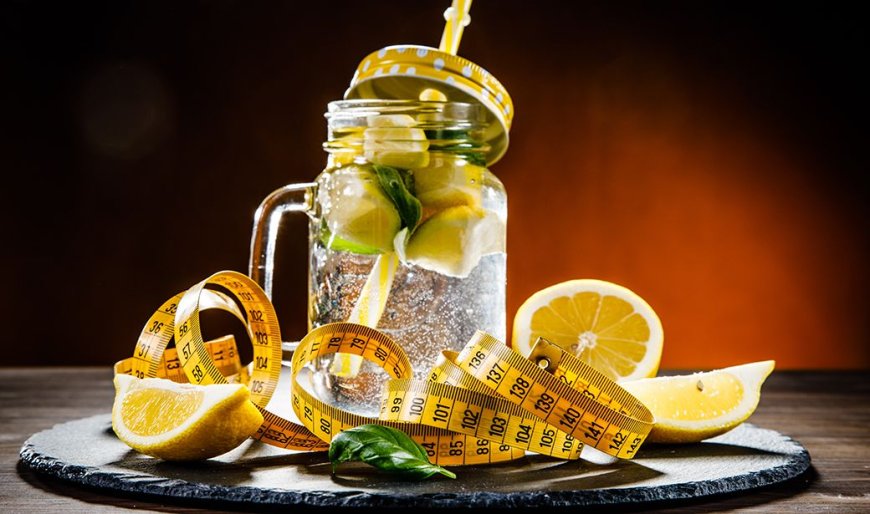The Dark Side of Modern Wellness Trends: What No One Is Telling You
Modern wellness trends promise better health, but are they safe? Discover the hidden dangers of detox teas, extreme diets, and wellness tech that no one talks about.

Introduction
In a world obsessed with health and self-care, wellness trends flood our social media feeds, promising everything from rapid weight loss to eternal youth. From detox teas to biohacking, these trends claim to enhance our well-being, but few talk about their hidden risks. The pursuit of health can sometimes lead us down a dangerous path, filled with misinformation, financial exploitation, and even serious health risks.
This article uncovers the lesser-known dangers of modern wellness trends and what you should watch out for before jumping on the next big health craze.
1. Detox Teas and Juice Cleanses: A Marketing Scam?
Detox teas and juice cleanses are marketed as quick fixes to flush out toxins, promote weight loss, and boost energy levels. But here's the truth—your body already has a powerful detox system: your liver and kidneys.
Many detox products contain laxatives like senna, which can cause dehydration, electrolyte imbalances, and long-term digestive issues. Research has shown that extreme detoxing can even lead to malnutrition and muscle loss, rather than sustainable weight management. Harvard Medical School warns against these trendy cleanses, emphasizing their lack of scientific support.
What to do instead: Focus on a balanced diet rich in fiber, antioxidants, and hydration. Your body doesn’t need a detox tea to cleanse itself—it needs proper nutrition.
2. Biohacking: Innovation or a Risky Gamble?
Biohacking, a trend that involves altering biology to improve health, sounds revolutionary. From fasting for longevity to micro-dosing psychedelics for mental clarity, it has captured global interest. But many biohacking techniques lack regulation and scientific validation.
For example, some people try DIY nootropics (cognitive-enhancing drugs), thinking they’ll boost brain function. However, without proper medical oversight, these substances can lead to serious neurological side effects, addiction, and mental health issues. The FDA has warned against unregulated nootropics, stating that many contain harmful or undisclosed ingredients.
What to do instead: If you’re interested in cognitive enhancement, opt for safe, research-backed methods like exercise, meditation, and sleep optimization.
3. The Hidden Dangers of Wellness Influencers
Social media influencers have become the new wellness authorities, but not all of them have credible health expertise. Many promote harmful, unverified practices, from raw vegan diets to extreme fasting, all while earning commissions from supplement companies.
The National Center for Biotechnology Information (NCBI) found that wellness misinformation spreads rapidly on platforms like Instagram and TikTok, leading to public confusion and health risks. People blindly following influencer advice may experience nutrient deficiencies, hormonal imbalances, and even eating disorders.
What to do instead: Always verify health information with peer-reviewed studies or consult a qualified professional before making drastic lifestyle changes.
4. Overuse of Supplements: Are You Taking Too Many?
Supplements are a booming industry, with millions of people relying on them for better health. However, more is not always better. Taking excessive vitamins, especially fat-soluble ones like A, D, E, and K, can lead to toxicity.
For instance, an overdose of vitamin D can cause kidney damage and calcium buildup in the blood, while too much vitamin A can lead to liver toxicity. Studies from Mayo Clinic highlight that many people overconsume supplements without realizing the risks.
What to do instead: Stick to whole foods as your primary nutrient source, and only take supplements based on medical advice.
5. Extreme Diets: From Keto to Carnivore, Are They Safe?
Diets like Keto, Paleo, and Carnivore promise quick weight loss and metabolic health, but they come with risks.
- Keto Diet: While effective for weight loss, prolonged keto dieting can lead to nutrient deficiencies, kidney stones, and heart disease, as noted by the American Heart Association.
- Carnivore Diet: Eliminating plant-based foods can deprive the body of essential fiber, antioxidants, and vitamins, increasing the risk of digestive disorders and inflammation.
- Intermittent Fasting: While beneficial for some, extreme fasting can cause hormonal imbalances and disordered eating behaviors if not done properly.
What to do instead: Follow a balanced, sustainable diet that prioritizes long-term health over rapid results.
6. The Problem with Wellness Tech: Are Smart Gadgets Really Helping?
Wearable health tech, from fitness trackers to sleep monitoring rings, has become a staple of modern wellness. While they provide valuable data, excessive reliance on these devices can create anxiety and obsession over numbers rather than genuine well-being.
A study published in the Journal of Behavioral Addictions found that many people develop orthosomnia—a sleep disorder caused by excessive focus on sleep tracking. Similarly, calorie-counting apps can lead to disordered eating patterns.
What to do instead: Use technology as a guide, not a rulebook. Listen to your body, not just your device.
Final Thoughts: Stay Informed, Stay Safe
Wellness should be about long-term, evidence-based practices rather than quick fixes or extreme measures. While some modern wellness trends offer genuine benefits, many come with hidden risks that influencers and marketers won’t tell you about.
To protect yourself:
- Research claims using trusted medical sources like Harvard Health or the CDC.
- Be skeptical of wellness fads promising overnight results.
- Consult qualified professionals rather than relying on social media influencers.
Wellness should empower you—not mislead, harm, or exploit you. The key to true well-being isn’t found in the latest trend but in science-backed habits, mindful choices, and a critical eye toward health advice.
What's Your Reaction?
 Like
0
Like
0
 Dislike
0
Dislike
0
 Love
0
Love
0
 Funny
0
Funny
0
 Angry
0
Angry
0
 Sad
0
Sad
0
 Wow
0
Wow
0



















































